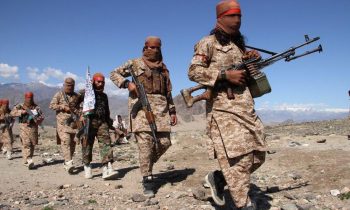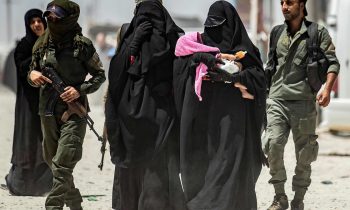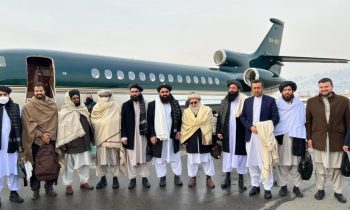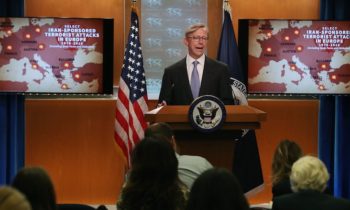 The Trump administration says it will be relentless with its sanctions against Iran until it’s a “normal country,” but still giving major importers of Iranian oil a chance to continue business without penalties.
The Trump administration says it will be relentless with its sanctions against Iran until it’s a “normal country,” but still giving major importers of Iranian oil a chance to continue business without penalties.
Iran has lost around $2 billion in oil revenue since May, when U.S. President Donald Trump pulled out of the nuclear deal, U.S. Special Representative for Iran, Brian Hook, told reporters on a call on Monday.
In a teleconference with journalists in the region, Brian H. Hook, US Special Representative for Iran and Senior Policy Adviser to Secretary of State Mike Pompeo said the Trump administration’s goal was zero imports of Iranian oil. “We have prepared for this day for the past six months. A million Iranian barrels of oil per day have been reduced from the market. More than 20 countries that previously imported oil from Iran have stopped” doing so, Hook said. “We will impose maximum economic pressure on Iran until it changes its behaviour.”
“We have taken 1 million barrels (of oil) off the market and that alone will reduce the Iranian regime’s oil revenues by $2 billion,” he said.
Brian Hook, Washington’s special representative for Iran, has underlined the risks for European companies, warning that any EU country hosting the so-called special purpose vehicle (SPV) could potentially be sanctioned.
“The United States will not hesitate to sanction any sanctionable activity in connection with our Iran sanctions regime,” Hook told a telephone call with European reporters when asked about the vehicle.
Hook said he did not see a demand from European companies to use the SPV because they preferred to invest in the United States.
“If you look at over 100 corporations that have decided to choose the United States market over the iranian market, they are not looking to avail themselves of any type of vehicle, they are very happy to continue working with the United States, “He told reporters.
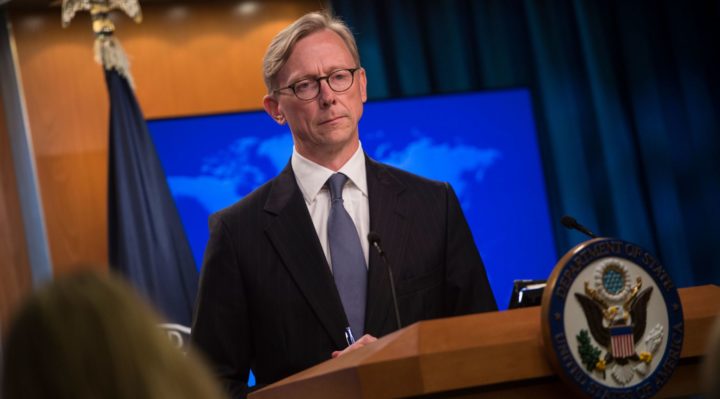
“In October, an Iranian assassin was arrested in Denmark for plotting an attack against members of a dissident group. And then you also had in June, security officials arrested an Iranian official for plotting to bomb a political rally in the heart of Paris.
Since the Iranian regime has come to power in 1979 it has conducted terrorist plots, assassinations and attacks in more than 20 countries and five continents around the world. And if you look at the report that I mentioned earlier, Outlaw Regime, on the State Department website, we list all of these assassinations and terrorist plots and attacks not only in Europe, but in all parts of the world.
So we have applauded European nations who have taken action against this threat. It is very strange to us to see this Iranian regime would spend so much time trying to keep the Europeans on-side, at the same time conducting bomb plots and assassination attempts in Europe. And it’s important for everybody to understand this is the regime that they’re dealing with, “He told to NORWAY NEWS.
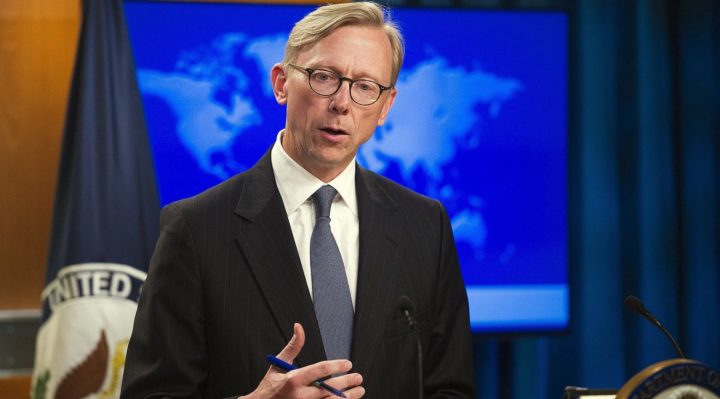
Below is a full rush transcript of a press conference by Brian H. Hook, Special Representative for Iran and Senior Policy Advisor at the Secretary of State.
Mr. Brian H. Hook : These are the toughest sanctions on the Iranian regime that have ever been imposed. Secretary Mnuchin said today it’s the largest-ever single-day action targeting the Iranian regime. And today the Treasury Department has sanctioned more than 700 individuals, entities, aircraft, and vessels.
This marks the reimposition of the remaining sanctions that were lifted or waived under the Iran nuclear deal.
The purpose of these sanctions is to diminish the regime’s capacity to fund its broad range of threats to peace and security. We want to place unprecedented financial pressure on the Iranian regime so that it will ultimately come to the negotiating table and decide that the cost/benefit analysis of behaving like a violent revolutionary regime is no longer in their favour.
The second round of sanctions that have gone into effect focus on critical sectors of Iran’s economy such as its energy, shipping, banking and ship-building sectors. Also insurance services and transactions with Iran’s Central Bank.
I just want to also mention that over the last six months —since the time the President announced he was getting out of the deal- we have allowed corporations and other businesses to unwind their investments in Iran, and that also includes the energy sector. And over the last six months we have taken at least one million barrels of Iranian oil off the market. This is a loss of revenue of more than $2 billion. We have had more than 20 countries that imported Iranian oil prior to May, have now zeroed out their imports because of our sanctions. We’ve also had more than 100 major companies from around the world have withdrawn from Iran or canceled their planned investments. And this is tens of billions of dollars in lost investment.
These are the consequences of behaving like an outlaw regime. The State Department in September released a report titled “Outlaw Regime” that I encourage everybody to take a look at. The Secretary put it out on Twitter and it’s available on the State Department’s website, and it does a nice job of summarizing the range of Iran’s threats to peace and security, and this includes terrorism, terror finance, cyber attacks, maritime aggression, missile proliferation. The list is quite extensive.
Question: Turkey is amongst eight countries granted favor from U.S. oil sanctions on Iran. Could you give us some details on the terms and conditions? And Turkey violated the previous U.S. sanctions on Iran and until now has repeatedly said it will not comply with the U.S. sanctions. How do you plan to find a common ground?
Mr. Brian H. Hook : I last week met with the Deputy Foreign Minister from Turkey. I also had a very good conversation with him the week before. Our diplomats have had very good discussions with Turkey. We did decide to grant an SRE. As is the case with all SREs, we don’t talk about the terms of granting the SREs. We decided to issue a handful. Understand that two of the eight importers have already stopped importing, and there’s a third that will be at zero by the end of the year. So of the eight, there were three that needed a little bit of time to conclude. The biggest challenge we’ve had is ensuring that while we meet our national security objectives we do not at the same time increase the price of oil. That would be bad for the American economy, it would be bad for the global economy, and it would give Iran an advantage if the world were to see higher oil.
So we have taken a very thoughtful approach. We, as I said earlier we’ve already taken off two million barrels, from 2.7 to 1.6. There will be further reductions. We have done a good job during this period of taking off a million barrels of oil. We have at the same time ensured an adequately supplied and balanced oil market.
Iran has been engaging in fear mongering to try to increase the price of oil. I think the analysts who follow this understand that there are strong fundamentals in the oil market, and we have done a good job of balancing national security and economics.
Question: Do you see the EU’s Special Purpose Vehicle as an effort to undermine the U.S.’s maximum pressure campaign? And what message do you have to any European firm that’s thinking of trying to use the Special Purpose Vehicle to continue dealing with Iran?
Mr. Brian H. Hook : We have not seen much, if any, demand for the Special Purpose Vehicle. I think if you take a look at the over 100 corporations that have decided to choose the United States market over the Iranian market, they’re not looking to avail themselves of any type of vehicle. They are very pleased to continue working with the United States. It’s much easier to work with the United States. We have a transparent and open economy. We don’t have an economy that’s run by a revolutionary guard corps. And there’s no reputational risk working with the United States, unlike Iran where if you decide to invest in Iran you’re never quite sure whether you’re facilitating commerce or terrorism. There’s a great deal of reputational risk given that Iran takes the revenues from its dark economy and spends them in supporting Assad, supporting the Houthis, supporting Lebanese Hezbollah, supporting Hamas.
We have now visited over 30 countries, teams from the State Department and Treasury have visited over 30 countries around the world to educate nations on the dangers and the reputational risk of doing business in Iran. We think that message has been very well received. We have seen only support for our sanctions regime and we do not anticipate any significant corporation using a Special Purpose Vehicle.
Question: Last week reports surfaced a Norwegian man of Iranian origin who planned to carry out an assassination attempt in Denmark. This person was arrested last week. Can you comment on activities by Iran on European soil?
Mr. Brian H. Hook : That’s a great question. In October, an Iranian assassin was arrested in Denmark for plotting an attack against members of a dissident group. And then you also had in June, security officials arrested an Iranian official for plotting to bomb a political rally in the heart of Paris.
Since the Iranian regime has come to power in 1979 it has conducted terrorist plots, assassinations and attacks in more than 20 countries and five continents around the world. And if you look at the report that I mentioned earlier, Outlaw Regime, on the State Department website, we list all of these assassinations and terrorist plots and attacks not only in Europe, but in all parts of the world.
So we have applauded European nations who have taken action against this threat. It is very strange to us to see this Iranian regime would spend so much time trying to keep the Europeans on-side, at the same time conducting bomb plots and assassination attempts in Europe. And it’s important for everybody to understand this is the regime that they’re dealing with.
Question: can you explain on the humanitarian trade side, what actions is being taken either via Swift or via other notes from the U.S. authorities, what action is being taken to allow that trade to continue for non-U.S. companies? And secondly, can you confirm that the three civilian nuclear projects that are being exempted in addition to Bushehr, the work on retooling Arak, and Fordow will there be others.
Mr. Brian H. Hook : On the second question, we’ll be releasing a fact sheet on that shortly today.
On the first question, just as was done before, humanitarian transactions to non-designated entities will be allowed to use the Swift messaging system, just as they have done before.
The United States has always maintained broad authorizations that allow for the sale of agricultural commodities, food, medicine and medical devices by U.S. persons or from the United States to Iran, and then we also provide the same exemptions by non-U.S. persons, to non-designated persons in Iran. And we understand the importance of this humanitarian channel because it does help the Iranian people, and we have never targeted humanitarian trade as part of any sanctions regime.
The United States is the largest donor of humanitarian assistance in the world. It would make no sense for us to apply anything other than a robust policy of permission.
The biggest challenge we have is with Iran which historically has diverted humanitarian transactions away from the Iranian people. The Iranian people know through various press reports that they have a history of ensuring that the regime elites receive humanitarian assistance, access to medicines, etcetera. They do not make those available to the Iranian people. The longest-suffering victims of the Iranian regime are the Iranian people. So, they know, the Iranian people know that the regime when it was given over $100 billion in sanctions relief, $1.5 billion in cash, and they chose to spend that wealth on militias and on Bashir Al Assad and terrorism around the world rather than addressing the domestic needs of its own people.
So, we encourage these transactions to take place. Iran needs to create a financial sector that is open and transparent to facilitate those humanitarian sales which are permitted by our sanctions regime.
Question: Whether any countries have applied for waiver exemptions within Europe that were not granted them. I see for one, Spain has not been granted a waiver despite the fact they were importing more crude oil than Greece and Italy, who have been given for much of this time, and if there’s any color you could give around that decision.
And just secondly, very quickly, you reported on Friday that Russia has said it will continue trading oil with Iran. I just wondered whether you had any response to that under their so-called Oil for Goods program.
Mr. Brian H. Hook : The United States will not hesitate to sanction any sanctionable activity in connection with our Iran sanctions regime. That’s the answer to the second question.
On the first one, we’ve had 20 countries, as I said, that have already zeroed out their imports. We have only had to grant a handful of waivers for the reasons I’ve talked about earlier, but we’re very satisfied with the architecture that we have set up. So I can’t say much beyond that.
We have, of the eight, there are only five that are significant. The other three are already at zero, and they’re just finishing up a payment, or they’ll be done by the end of the year.
So most countries, the majority of the countries that import Iranian crude have gone to zero, and our policy, our goal remains getting countries to zero over time, and we’re not looking to grant exemptions or waivers. I talked about the reasons why we did it this time. So we’ll be, over the next six months the significant reduction exceptions are granted for a period of six months, and then when we get to May, we’ll be reassessing where we are with our diplomacy. We’re hopeful that we’ll have a more robustly supplied oil market. Right now it’s adequately supplied. We’ve seen more supply coming on in 2019, which of course puts us in a better position to accelerate our path to zero.
Question: This unprecedented sanction and pressure against Iran did you see any window that you missed for the Iranian authorities to reengage on the regional and with the international community on the matters of concern whether it is nuclear or ballistic activity?
Mr. Brian H. Hook : The President and the Secretary of State have made clear that we are open to negotiations with Iran. The Ayatollah has said publicly that the Iranian regime requires hostility with the United States. They have said on a number of different occasions that they are not, Iran is not seeking talks with us. But we have made it clear, Secretary Pompeo made it clear in May when he listed the 12 requirements that Iran must meet. These 12 requirements reflected the global consensus prior to the adoption of the Iran Nuclear Deal. We’re simply asking the Islamic Republic to behave like a normal country so that it can enjoy the privileges of a normal country. Normal countries don’t terrorize other nations, proliferate missiles and rob their own people blind. This is a dark religious dictatorship that has been imposing enormous suffering for 39 years on the Iranian people. Many of the demands that the Iranian people make are the same demands that we are making.
We would like Iran to get out of Syria. So would the Iranian people. You saw that in the protests in December and January where people were holding up signs saying, “Forget Syria, Remember Us.”
So we think that we have been very clear about the best path going forward. If Iran is willing to start behaving like a normal country and we can get to a new agreement that addresses the entire range of threats that Iran presents to peace and security, then it’s a very positive future for the Iranian people. Full diplomatic relations with the United States, commercial relations. We would welcome Iran into the international financial community.
The problem is that because the regime has behaved like a revolutionary regime for 39 years, the regime, the country has gone through economic and diplomatic isolation for much of its history. That certainly isn’t for the benefit of the Iranian people. They pay an enormous price for the revolutionary behavior of this regime.
So we hope and are confident in our diplomacy, deployment of maximum pressure other than to deny than revenues to fund terrorism and violent misadventures around the world, is to get them to come back to the negotiating table. Historically, that has worked. In the run-up to the Iran Nuclear Deal in the last administration you had a great deal of economic pressure that was put on Iran, and they eventually came to the table. We anticipate the same outcome under the current sanctions regime.
Question: What risks are there for energy markets in EU countries of the results of the sanctions against Iran?
Mr. Brian H. Hook : We don’t see any risk to the energy market because we have, the United States has increased its crude oil production. We’re up by 1.7 million barrels per day. Our exports are up one million barrels. Over the next year U.S. production will increase by one million barrels per day or more. The Saudis have increased production, Iraq, Russia, they’ve all increased production. So we see in 2018, we anticipate that supply will exceed demand, and I think the price at Brent in May is about the same price it is now, which shows that we have been able to take off a million barrels of Iranian crude without increasing the price of oil.
We will ensure, as we continue to take more barrels of Iranian crude off the market that those are replaced with alternative crude supplies to keep the oil market stable and well supplied.
Question: Earlier you described the Special Purpose Vehicle basically as an empty hole. Those weren’t your words, but you described it as something that isn’t gaining a lot of traction on the market.
However, it does seem to be held up as sort of a shiny object in Tehran by those people who argue in favor of upholding the terms of the JCPOA.
So my question to you is, is it actually in the U.S. interest to, are you actually encouraging the Europeans to keep up their work, that way to give the Iranians a reason to not start engaging in nuclear activity? Or put differently, what would you like the Europeans to do differently than they are doing now?
Mr. Brian H. Hook : Whether the Europeans and the other parties to the deal provide or don’t provide economic benefits to the regime under the JCPOA is irrelevant to the broader question of whether Iran should restart its nuclear program. That would be an enormous mistake. If Iran were to do that, then that would presumably end the nuclear deal.
We’ve made our decision to get out of the deal. Other nations need to make their own decisions in their sovereign capacity. We are very much focused on the future, not the past. We are focused on getting a new and better deal, one that does not just address one threat that Iran presents to peace and security, but the range of threats that Iran presents. We think that was one of the mistakes of the Iran deal, was that it was narrow. It was too narrow. And then it gave a green light to Iran to engage in all of the non-nuclear threats to peace and security which Iran has done for the life of its regime.
Going back to your question about the Special Purpose Vehicle, doing business with the regime just gives it revenues. You’re just giving revenues to the number one state sponsor of terrorism in the world. And when you look at the costs of doing business, we see it illustrated by the terrorist activities inside of Europe: in Paris and in Denmark. So we think that it is in Europe’s best interest to take the range of threats that Iran presents with more focus. We know that we share the same threat assessment. We think it’s important for the members of the European Union to take action against Iran’s missile program, which has been proliferating around the Middle East, in Iraq, Syria, Yemen, Lebanon. We’re very pleased to see more than 100 companies that have decided to end doing business with Iran. We think that number will grow. And we will continue to take all the actions that we think are necessary to improve the security of the American people and to put enough pressure on the regime so that it decides to change its behavior.
Question: I wanted to know if the European country hosting the SPV would be talked to by U.S. sanctions? So the headquartering country of SPV, would it be vulnerable to U.S. sanctions? Thank you.
Mr. Brian H. Hook : If an individual or entity engages in a transaction that is in violation of our sanctions regime then, as we’ve said repeatedly, we will sanction sanctionable activity.
We do not anticipate much need for this because we have already seen such enormous support for our way forward. If you are a major European company or if you’re a major company anywhere in the world, you will choose, if you’re given a choice between doing business in the United States and doing business with Iran, it will be the fastest decision you ever make as CEO. So we just don’t anticipate people availing themselves of any kind of vehicle to evade our sanctions regime.
Brian Hook is the U.S. Special Representative for Iran and Senior Policy Advisor to the Secretary of State. Prior to this appointment, he served as Director of the Policy Planning Staff from 2017-2018.
From 2009-2017, he managed an international strategic consulting firm based in Washington, DC. He held a number of senior positions in the Bush Administration, including Assistant Secretary of State for International Organizations; Senior Advisor to the U.S. Ambassador to the United Nations;
Special Assistant to the President for Policy in the White House Chief of Staff’s office; and Counsel, Office of Legal Policy, at the Justice Department.
He practiced corporate law at Hogan & Hartson in Washington from 1999-2003. Before practicing law, he served as an advisor to Iowa Governor Terry Branstad and to U.S. Congressman James Leach.

